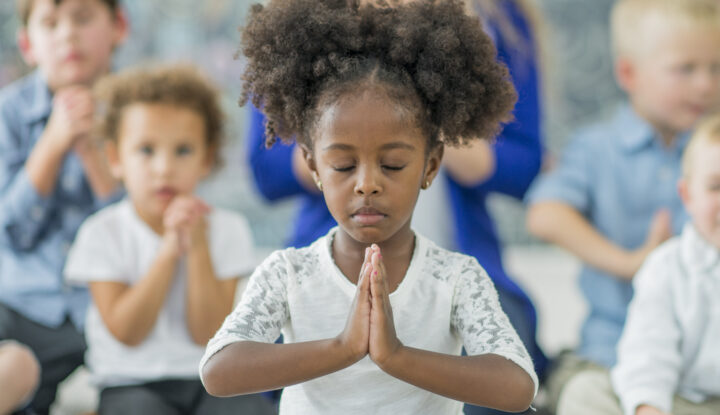In a 2019 YouGov poll, parents ranked religious worship 13th out of a list of 13 possible activities that might take place in a school assembly. The majority of parents (51%) didn’t think it was an appropriate activity at all. In the past 23 years, since the requirement was officially reconfirmed by the UK parliament in 1998, parents’ groups, religious groups (apart from the Roman Catholic and Anglican churches) and many others, including every major teaching union, have called for reform.
What would replace worship is not difficult to determine. Inclusive assemblies, focusing on building mutual respect, exploring big ethical issues, and celebrating achievement, allow children to learn from and with one another in an environment that honours their individual rights to freedom of conscience and freedom of religion or belief.
That is why today Humanists UK is supporting the Vice-Chair of the All-Party Parliamentary Humanist Group (APPHG), Baroness Burt’s Education (Assemblies) Bill, which has its second reading in the House of Lords. The Bill would repeal the requirement for schools without a religious character to carry out a daily act of Christian worship and replace it with a requirement for inclusive assemblies that are suitable for all pupils regardless of background. It was a requirement that Humanists UK opposed when it was controversially imposed in 1944 and seven decades later, it’s exciting to see it properly challenged again in parliament.
The case for inclusive assemblies
Proponents of collective worship will often excuse it by pointing to a parent’s legal right to withdraw their child from this statutory requirement. They may even point to the fact that many headteachers are already ignoring this archaic law and providing their own alternatives.
Well, the fact that a law is not being observed is equally a case for its abolition as its retention, but in fact earlier this year, the Government ‘reminded schools of their duty on the matter’ and pledged to police the law. Not such a dead letter after all.
In any case, the argument about worship and its enforcement obscures one of the strongest reasons for repealing the current law: Inclusive assemblies are a fantastic alternative in their own right.
Building a strong community
Inclusive assemblies open up discussions about belief, faith, and values and as a result, foster healthy and positive personal and community relationships. In schools where inclusive assemblies already exist (technically unlawfully) teachers are using stories or music from a range of different sources to explore shared values, build community, and enrich children’s moral and cultural development.
These shared moments allow pupils to get a deeper understanding of others’ religion or beliefs, seeing themselves not just as individuals but as members of a positive community.
Respecting human rights
The freedom to consider different facts, viewpoints, and thoughts independent of others’ viewpoints is a human right, owed to children no less than other human beings. It is our responsibility to make sure that the education system – and within that, school assemblies – respects and allows for freedom of conscience.
We also have the responsibility to enable a child’s right to freedom of religion or belief, something that is not respected when religious worship is imposed on them. In 2016, the UN Children’s Rights Committee called for the repeal of the UK’s compulsory collective worship laws on the basis it violated that right. In 2021, it pressed the governments of the UK to ‘describe the measures taken to repeal legal provisions for compulsory attendance at collective worship in publicly funded schools’.
Inclusive assemblies would, by contrast, make sure that schools are fulfilling their legal obligation to honour fundamental human rights.
A meaningful alternative
Up and down the country, headteachers are already proving the benefits of inclusive assemblies. But they’re breaking the law by doing so. Only by ending compulsory worship once and for all and replacing it with a requirement for inclusive assemblies, will the spiritual, moral, social, and cultural development of all pupils become a reality in all community schools.
